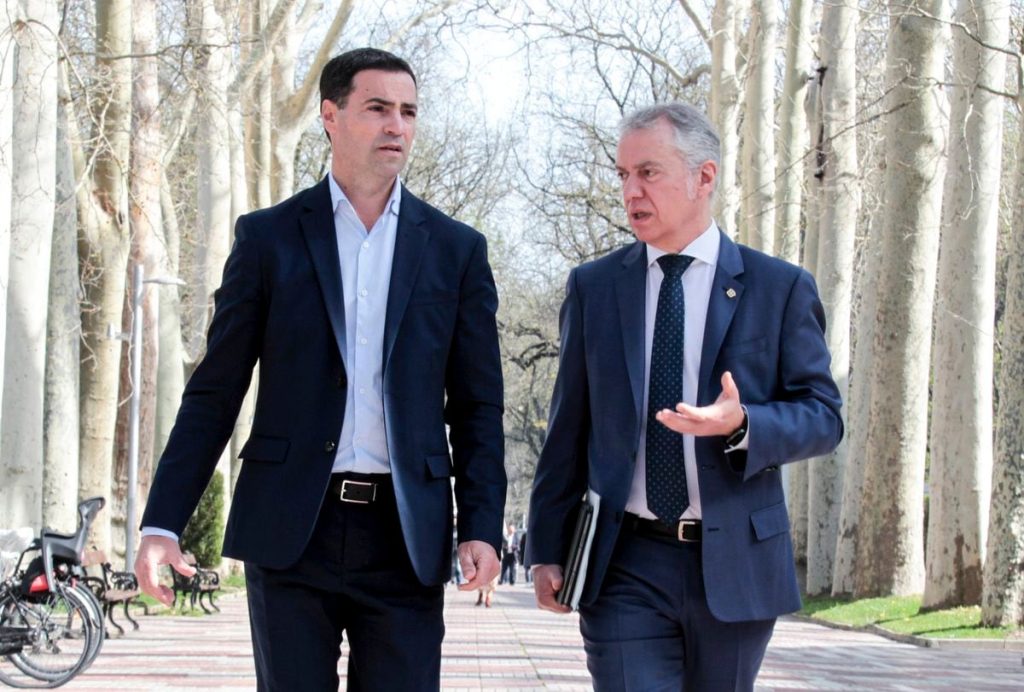The focus is on the upcoming elections in which the PNV and EH Bildu are the main players. The president of the PNV is concerned about the outcome, criticizing EH Bildu for having an inexperienced candidate who is controlled by the leaders behind the scenes. On the other hand, EH Bildu’s director general defends their leader Arnaldo Otegi as an undisputed figure in the independence movement. The tension between the two parties is evident, with both preparing for the elections with Madrid’s political landscape in mind.
The selection of candidates, Imanol Pradales for the PNV and Pello Otxandiano for EH Bildu, is a strategic move influenced by the changing political scenario in Spain. The PNV is looking for a younger candidate who can lead them through the challenges of ecological, digital, and social transitions, while EH Bildu is considering the possibility of a government with extreme right-wing parties like Vox. The dynamics between the parties reflect the broader political context in Spain, where alliances and policies are being shaped by national and regional interests.
The PNV is facing a tough challenge from EH Bildu, who has a strong hold on their historical electorate and is benefiting from a perceived sense of renewal among voters. Despite being a long-standing party in power, the PNV is now on the defensive, while EH Bildu is playing it safe and capitalizing on a newly gained legitimacy in the Congress of Deputies. The political landscape in the Basque Country is in flux, with the balance of power shifting between the two main nationalist parties.
The PNV’s concerns about EH Bildu’s rise and potential impact on the political scene are evident in their criticism of the left-wing party’s tactics and messaging. EH Bildu, on the other hand, sees an opportunity to present their policies and agenda to a wider audience through their support for the current government in Madrid. The competition between the two parties is not only about winning votes but also about shaping the future political landscape in the Basque Country.
The PNV is positioning itself as the traditional party of government with a focus on continuity and experience, while EH Bildu is presenting a younger and more dynamic leadership style. The upcoming elections will test the strength of these contrasting approaches and their appeal to voters. The role of other parties, like the PSE, in determining the outcome of the elections adds another layer of complexity to the political scenario in the Basque Country, where alliances and strategic decisions will shape the future direction of the region.
In conclusion, the upcoming elections in the Basque Country are shaping up to be a pivotal moment in the region’s political landscape, with the PNV and EH Bildu vying for control and influence. The contrasting approaches of the two main nationalist parties, along with the strategic moves of other parties like the PSE, will determine the future direction of the region. The evolving political dynamics in Spain also play a significant role in shaping alliances and policies at the regional level, underscoring the complex interplay between local, regional, and national politics.


